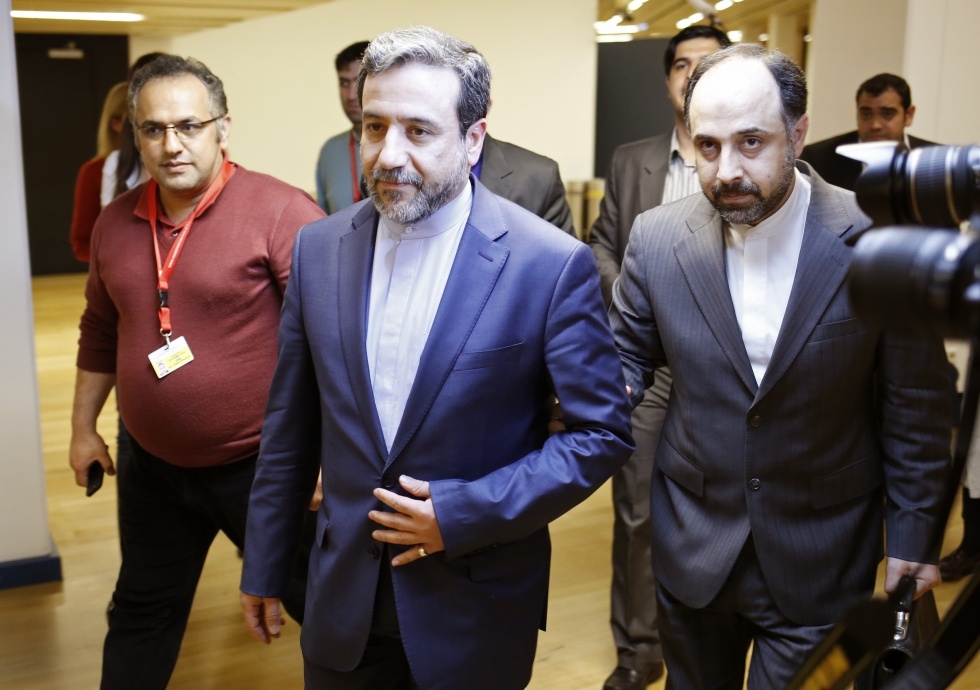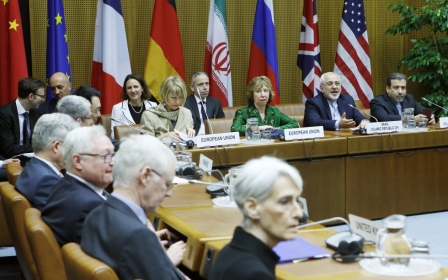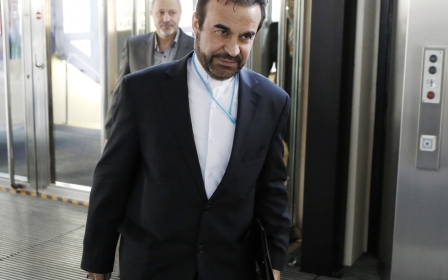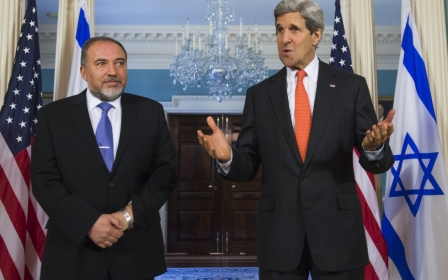Iran nuclear talks come to an end without agreement

The fourth round of negotiations between Iran and the P5+1 group of world powers aimed at reaching a permanent settlement to Tehran’s controversial nuclear program has ended with no signs of progress.
Officials said on Friday that no agreement has been made after four day of negotiations in Vienna, headed by the EU’s High Representative for Foreign Affairs and Security Policy, Catherine Ashton, and Iran’s Foreign Minister, Mohammad Javad Zarif.
"No progress has been made, but talks will continue," Iran's deputy foreign minister Abbas Araqchi told reporters.
The first three rounds of negotiations were used to exchange opinions and ideas, while the fourth round was established to finalize an agreement, according to Araqchi.
"There were still differences between the sides," said Araqchi, "But further rounds of talks will still take place in June."
New MEE newsletter: Jerusalem Dispatch
Sign up to get the latest insights and analysis on Israel-Palestine, alongside Turkey Unpacked and other MEE newsletters
The US, Great Britain, France, China, Russia plus Germany on one side, and Iran on the other, discussed uranium enrichment, nuclear cooperation, sanctions and heavy-water reactors.
The exact date of the fifth round of negotiations has yet to be decided.
Under a deal reached in Geneva on 24 November, 2013, Western countries agreed to provide Iran with some sanctions relief in exchange for it agreeing to limit certain aspects of its nuclear activities for a six-month period.
Tough talks
Iran and world powers warned Friday they are a long way from reaching a comprehensive and potentially historic nuclear deal by a July 20 deadline following tough talks in Vienna.
Such an accord would see Iran roll back its nuclear programme in order to render it virtually impossible for Tehran to make an atomic bomb, in exchange for a lifting of all sanctions.
Failure could have calamitous consequences, sparking possible conflict -- neither Israel nor Washington rules out military action.
In this fourth round of talks, Iran and the five permanent members of the UN Security Council plus Germany aimed to start drafting a deal before a November interim accord expires on July 20.
"The gaps were too large to begin drafting the text of an accord," Iran's chief negotiator Araqchi told state television.
In this round "we made no tangible progress," he said, adding that the differences were "too huge".
A source close to the Iranian delegation was quoted by the IRNA news agency as saying that "the West has to abandon its excessive demands".
Western diplomats were similarly downbeat, saying that Iran needed to be more prepared to budge on its positions.
"Huge gaps remain, there is really more realism needed on the other side," one Western diplomat said. "We had expected a little more flexibility."
"Iran still has to make some hard choices. We are concerned that progress is not being made, and that time is short," a senior US official said. "We believe there needs to be some additional realism at this point."
The official added however that both sides had been well aware that this would not be an easy process, and that they remained committed to getting an agreement.
Unusually, no date was announced for the next round, although officials said it would be some time in June.
There was also no closing press statement by Ashton and Zarif.
Michael Mann, a spokesman for Ashton, explained that the parties "don't want to break things down and give a snapshot of where we are after every session."
"We have had three days of hard work. As we have said, the negotiations are complex and detailed," he said.
Tricky issues
Neither side gave any indication of which particular issues were proving difficult.
Comments previously indicated that there had been some narrowing of positions on the Arak reactor, but both sides insist that nothing is agreed until everything is agreed.
The biggest issue -- and main problem area -- is the enrichment of uranium, which makes it suitable for power generation but also, when highly enriched, for a bomb.
Multiple UN Security Council resolutions have called on Iran to suspend this process.
The world powers want to extend the time Iran would need to enrich its stockpile of low-enriched uranium to weapons-grade by slashing the number of centrifuges from the current 20,000.
The Islamic republic denies wanting nuclear weapons and says that it needs to enrich for a fleet of nuclear power plants, which however it has yet to build.
Ballistic missiles
Another issue is Iran's development of ballistic missiles, a point that Tehran has said should not be part of the nuclear talks. Washington disagrees.
Also to be resolved is the IAEA's long-stalled probe into alleged past "military dimensions" to its programme before 2003 and possibly since.
A Thursday deadline for Iran to clear up one small part of this -- its stated need for certain detonators -- passed without comment from either Iran or the International Atomic Energy Agency.
"The gaps between the parties are large, but not insurmountable. Negotiators on both sides expected obstacles, but if they are willing to be flexible and creative, a deal can be reached," Kelsey Davenport from the Arms Control Association told AFP.
"Both sides know that diplomacy remains the only viable option for reaching a win-win agreement that meets the needs of all the parties involved."
Middle East Eye delivers independent and unrivalled coverage and analysis of the Middle East, North Africa and beyond. To learn more about republishing this content and the associated fees, please fill out this form. More about MEE can be found here.




